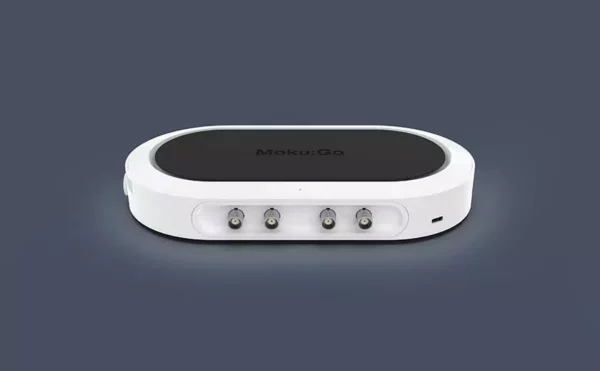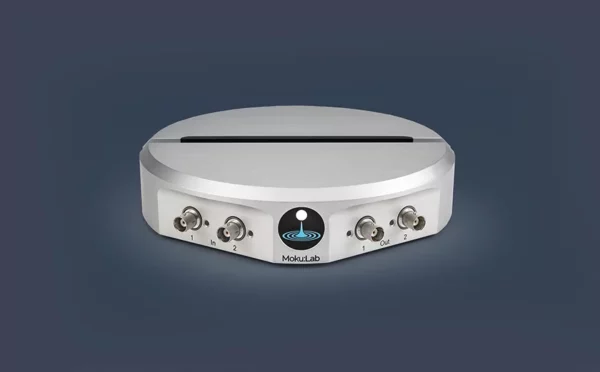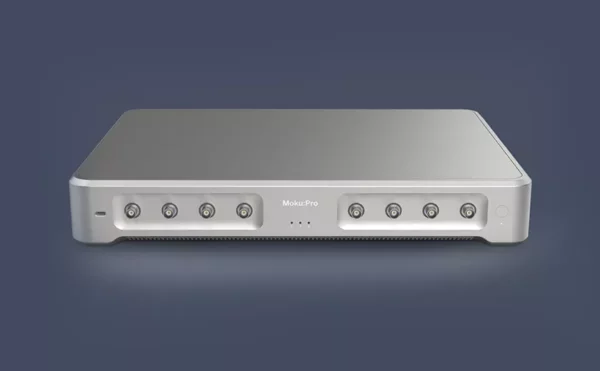Data Logger
The specifications for Moku:Go, Moku:Lab and Moku:Pro‘s Data Logger all vary however, they all store data from the signals you analyse. Their specifications can be found in the specifications tab.
Below is the Data Logger’s user interface showcasing some of the key features explained below:
Key Features of the Data Logger:
Flexible export options with the versatile Moku Data Logger
It’s easy to log critical voltage data on each independent input channel. Log to internal memory, a solid-state drive, or an SD card depending on your hardware platform. Once you’re done, export data directly to your computer or cloud-based storage.
Drive your signal and log the output
With the embedded Waveform Generator, choose from five prebuilt waveforms and generate on up to four output channels, all within the Data Logger instrument.
Set it and forget it with advanced scheduling and triggered start
Schedule a log to start after a delay of up to 10 days, or set up a trigger event to start your logging session. Make long-term measurements limited only by the internal storage of the device or the size of your SD card.
Export your data how you want it, where you want it
Easily export data to an SD card, Dropbox, email, iCloud, or the iPad “My Files” folder. Log data to binary files and convert to plain text (CSV) or MATLAB (.MAT) files using the LI file converter.
Engineered to work seamlessly with your preferred APIs
API integration with Python, MATLAB, and LabVIEW allows straightforward automation of your Moku device in complex setups or for repetitive tasks. Save your measurements, screenshots, traces, and other settings locally or to your preferred cloud app. You can also send work to yourself or colleagues within the Moku app.
Applications:
- Embedded instrument data logging
- Environment monitoring
- Vibration analysis
- Sensor data recording
- Temperature monitoring



































